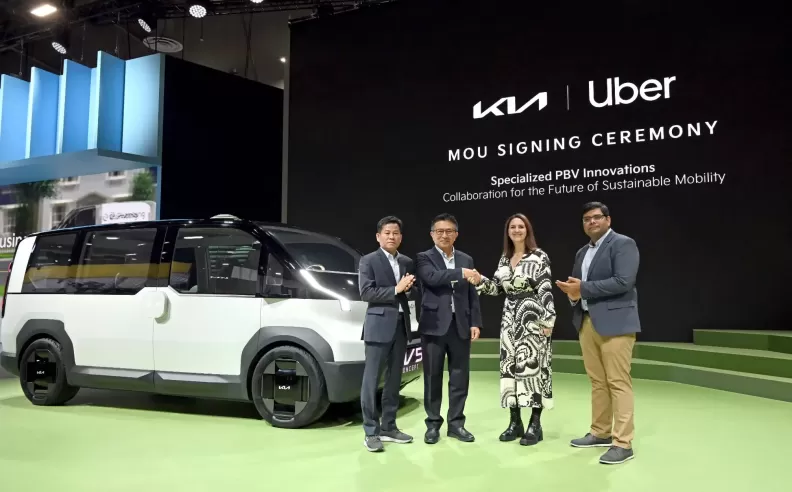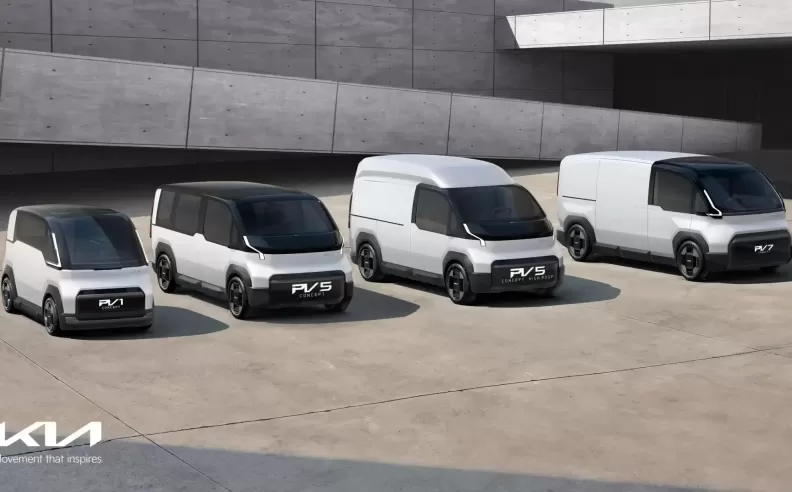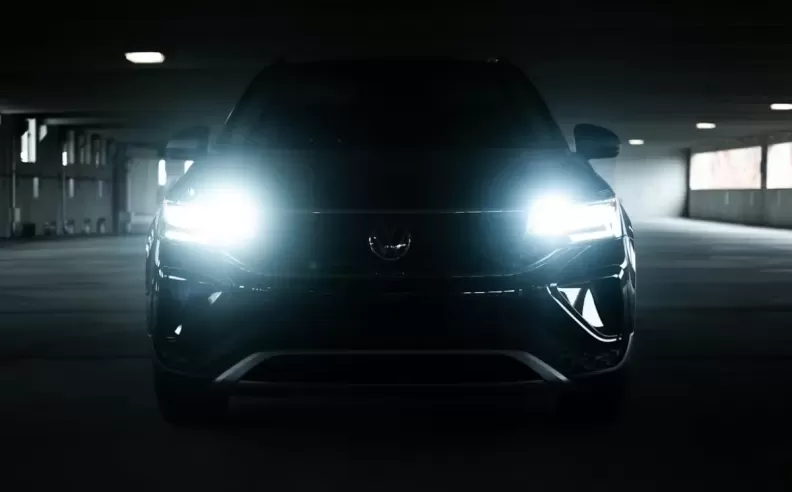
Kia Corporation and Uber have signed a Memorandum of Understanding (MoU) at this week’s Consumer Electronics Show (CES) in Las Vegas, committing the two companies to collaborate on Kia’s planned development and deployment of PBVs.
With the goal of enhancing electric vehicle offerings available on Uber’s mobility platform and supporting the global ride hailing leader in achieving its 2040 zero-emission goal, the partnership will seek to produce Kia PBVs optimized for drivers and fleets as part of Kia’s ‘Platform Beyond Vehicle’ strategy in this field of the mobility market.
“PBVs will play a key role in the customization of mobility, and by partnering with Uber, Kia aims to deliver industry-leading technology with advanced software and services to enhance the ride hailing experience,” said SeungKyu (Sean) Yoon, president & CEO, Kia North America, and Kia America.
“Drivers on the Uber platform will also have the ability to choose Kia vehicles with a comprehensive suite of offerings that will ease the ramp up of electrification and help achieve both Kia’s and Uber’s sustainability goals.”

The intentions of the collaboration are for Kia to identify optimal specifications for PBV models, with the possible further integration of technology and services to benefit drivers and ride hailing users alike. The partnership’s goals also extend to the creation of proofs of concept, prototypes, and the production of PBVs tailored to the needs of drivers that use the Uber platform.
“PBVs will play a key role in the transformation of mobility. This collaboration will enhance Kia's PBV development, with optimized vehicles for drivers' and riders' needs,” said Sangdae Kim, Head of PBV Division, Kia. “This will focus on advanced software and services, with the integration of interactive In-Vehicle Infotainment and advanced safety technology.”
New driver and passenger experiences could be facilitated through the development of optimized operational solutions, building connected car experiences for all. Personalized riding environments, including climate and sound control, and interactive rear-seat entertainment systems, may also follow.
Kia and Uber will collaborate on ways to moderate total cost of vehicle ownership by analyzing the various PBV options and potential Battery as a Service (BaaS) subscription offerings to reduce initial vehicle purchase costs.
Bringing benefits to Uber and drivers alike, the collaboration will also see the growth of the Kia Flex program in North America, with global expansion planned for the near future.
Currently in operation across several states in the U.S., Kia Flex allows drivers to choose Kia vehicles for use on the Uber platform. The expansion of Kia Flex will offer drivers on the Uber platform a comprehensive vehicle package, including EV options, insurance, and maintenance.
“Drivers on the Uber platform are already EV early adopters, going electric six to seven times faster than the general population in the US and Europe,” said Susan Anderson, Vice President, Global Head of Business Development. “That’s great for all of us because when rideshare drivers go electric, communities see three to four times the emissions benefits compared with an average driver making the switch.
“By teaming up with Kia and providing our insights, we aim to broaden the appeal and lower the cost of electric vehicles, making them a more natural choice for more drivers.”
The application of Kia Connect diagnostic and preventive services will drive operational efficiencies by using data-driven solutions to detect signs of potential malfunctions, minimizing maintenance outlay and downtime.
Revealed earlier this week at CES, Kia’s PBV project is a multi-phase, decade-long plan which will see PBVs revolutionize the mobility industry while helping to advance Hyundai Motor Group’s ambitions in robotics, Advanced Air Mobility (AAM), and autonomous driving.
The PBV business will initially be based around the introduction of an all-new, modular vehicle, called the Kia PV5, with more versions set to be launched, including: PV5 High Roof, PV5 Van, PV5 Chassis Cab, PV5 robotaxi and PV5 Pickup. While all variants will be based on the same modular versatility of the base model, each will offer a unique set of characteristics, with further Uber-specific optimizations tailored for the ride hailing market.

Motor 283 is the biggest automotive website created by a team of automotive enthusiats and this author page is used to show the readers the press releases and news posted on Motor 283 website.

